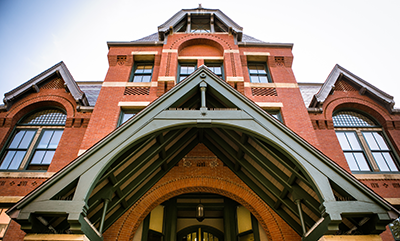Independence Day and the Immigrant.
 Like many Americans, I have found it hard to stop thinking about the heartbreaking photo of the bodies of Óscar Alberto Martínez Ramírez and his daughter, Angie Valeria, migrants from El Salvador who drowned while attempting to cross the Rio Grande to seek asylum in the US. I think about the hopes and fears that might have caused them to make such a dangerous journey—hopes for a better life in America, fears of having to return to face gang violence and economic hardship in El Salvador. I have especially been thinking about Óscar and Valeria this Fourth of July week, a time to celebrate the country’s founding, and the ideals of freedom and opportunity that characterize this nation at its best. These ideals are important to all Americans, but, I would argue, they are particularly important to immigrants. Indeed, they are the reason many immigrants come to this country, often in the face of difficult circumstances.
Like many Americans, I have found it hard to stop thinking about the heartbreaking photo of the bodies of Óscar Alberto Martínez Ramírez and his daughter, Angie Valeria, migrants from El Salvador who drowned while attempting to cross the Rio Grande to seek asylum in the US. I think about the hopes and fears that might have caused them to make such a dangerous journey—hopes for a better life in America, fears of having to return to face gang violence and economic hardship in El Salvador. I have especially been thinking about Óscar and Valeria this Fourth of July week, a time to celebrate the country’s founding, and the ideals of freedom and opportunity that characterize this nation at its best. These ideals are important to all Americans, but, I would argue, they are particularly important to immigrants. Indeed, they are the reason many immigrants come to this country, often in the face of difficult circumstances.
The deaths of Óscar and Valeria reflect an influx of asylum seekers trying to cross the southern border, and an immigration system that is ill-equipped to handle them. Border Patrol apprehended 58,474 members of family units last April alone—a record high. Yet, on this Fourth of July, we live in a country that is failing to adequately address the challenge of immigration. This issue calls for sensible, humane solutions, such as improving conditions for migrants being processed at the border—especially for children and families—and, in the long-term, addressing the economic and political challenges in Latin America that drive so many people to risk danger for a better life in the US. It also means creating a pathway to citizenship for undocumented immigrants already here, particularly for recipients of the Deferred Action for Childhood Arrivals (DACA) Program, whose fate has been subject to much uncertainty in recent years.
Sa
Even under the best of circumstances, the immigrant experience—the experience of being alien, of being “other”—is not easy. It is full of dislocations, uncertainty, and the ongoing challenge of building an identity in a country that does not always know what to make of newcomers. When I immigrated from Malta to Canada in 1985, I was lucky enough to have many advantages. I spoke English, traveled with a supportive family, and never lacked basic necessities. As near-optimal as these conditions were, however, I still dealt with the same hurdles faced by many immigrants, from the difficulty of fitting in at school, to the strangeness of navigating unfamiliar terrain (I had, for example, never seen a highway before moving to Canada), to tense encounters with authority figures—from airport police singling me out for searches, to the high school teacher who refused to give an immigrant any grade higher than a C because he did not think such people could ever produce quality work.
Th
I hope everyone has a terrific week.
Warm regards,
Sandro
Sandro Galea, MD, DrPH
Dean and Robert A. Knox Professor
Boston University School of Public Health
Twitter: @sandrogalea
Acknowledgement: I am grateful to Eric DelGizzo for his contributions to this Dean’s Note.
Previous Dean’s Notes are archived at: /sph/tag/deans-note/